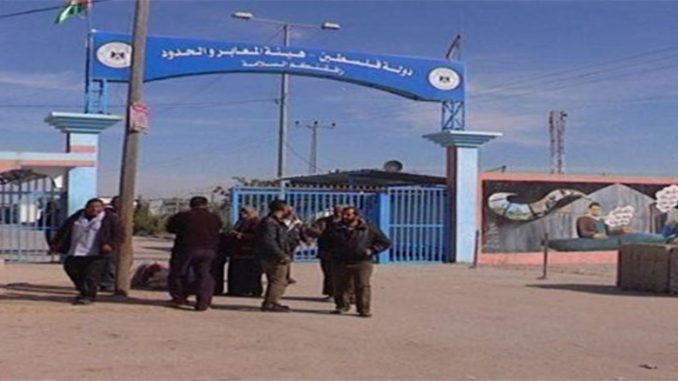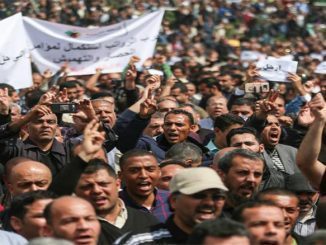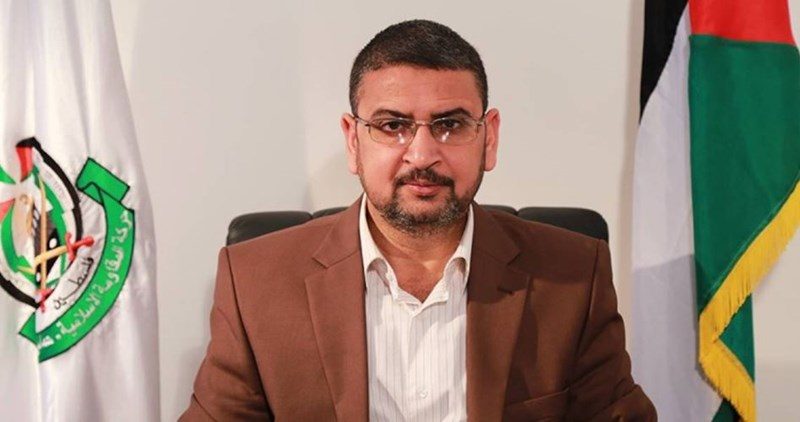
The Hamas-run Ministry of Interior in Gaza closed the Palestinian side of the Beit Hanoun (Erez) crossing between the Gaza Strip and Israel on Sunday morning, denying residents of the besieged coastal enclave passage in both directions.
Spokesperson for the ministry Iyad al-Buzm said in a statement that the crossing would remain closed until further notice in order for Gaza’s security serves to undertake “procedures” in response to the killing of 35-year-old Mazen Fuqahaa in Gaza City on Friday, which Hamas has branded as an assassination by Israel.
Erez is the only land crossing between Gaza and Israel for the use of Palestinian civilians. While travel is heavily restricted by Israeli authorities as part of a crippling blockade on the coastal enclave in place since 2007, the Hamas-implemented closure came as a rare measure.
Al-Buzm added that the ministry would allow “humanitarian cases” to return home from Israel, but did not say humanitarians cases would be permitted to leave the blockaded Palestinian territory.
Fuqahaa was shot with four bullets to the head in front of a residence in southwestern Gaza City on Friday night and fled the scene, with Hamas officials saying the assassination was carried out with a silenced gun, by assailants who were “collaborating” with Israel. Hamas has yet to provide proof to support the accusation.
Hamas and other Palestinian factions, including the Islamic Jihad and the leftist Palestinian Front for the Liberation of Palestine, denounced the perceived escalation of hostilities by Israel against Palestinians in Gaza, and vowed to retaliate.
Fuqahaa, from the northern occupied West Bank district of Tubas, served nine years out of a life sentence in Israeli custody, before he was released in 2012 as part of Gilad Shalit prisoners exchange deal. He was then exiled to the besieged Gaza Strip, with Israel denying permits to his family members to reunite with him.
Fuquhaa’s father, who still lives in Tubas, told Asra Radio that he also accused Israel of the assassination. “Israeli intelligence officers came to our house many times and gave us messages that Mazen would be liquidated if he continued with his actions,” the report quoted him as saying.
Fuqahaa was a well known leader in Hamas and member the movement’s military wing the Izz al-Din al-Qassam Brigades. He was sentenced to life in prison after Israeli accused him of planning a suicide bombing in northern Israel in 2002 that left nine people dead and tens of others wounded.
Hamas’ unprecedented move to close the crossing, and accusations by Palestinian factions that the alleged assassination marked “a new offensive” by Israel against Palestinian resistance, came as rights groups have also expressed concern that Israel could be leading up to a wide-scale military offensive in the small Palestinian territory.
In the wake of a series of Israeli airstrikes in Gaza, the Gaza-based al-Mezan Center for Human Rights said the escalation was reminiscent of incidents that lead up to Israel’s wide-scale military assaults on Gaza like the so-called Operation Protective Edge in 2014, a devastating 51-day assault that resulted in the death of at least 1,462 Palestinian civilians.
Since the group issued the warning, Israel has shelled Gaza in a several instances, which has left a 15-year-old boy killed, at least six injured, and has damaged the impoverished territory’s electricity infrastructure amid an already dire power crisis.
Despite accusations from Israeli army officials that the ongoing attacks on the Gaza Strip are in response to rockets fired from Hamas forces in Gaza, Hamas has yet to claim responsibility for any military action from Gaza against Israel since a ceasefire the 2014 war.
Senior Hamas official Khalil al-Hayya reiterated earlier this month that the Hamas movement “is not seeking new military confrontations with the Israeli occupation.”
“We don’t seek war, and we are committed to the ceasefire agreement of 2014.” However, he went on to warn that Hamas would defend themselves if Israel waged war on the coastal enclave. “We are not war fanatics, but we are a bereaved and oppressed people who resist occupation,” al-Hayya said.
The majority of the some two million Palestinians in the Gaza Strip are sealed inside the coastal enclave due to the continuation of a near-decade long military blockade imposed by Israel and upheld by Egypt on the southern border.
The destruction from three Israeli offensives over the past six years, including damage to the enclave’s water, sanitation, energy, and medical facilities, coupled with slow reconstruction due to the blockade led the UN to warn that Gaza could be “uninhabitable” by 2020.



